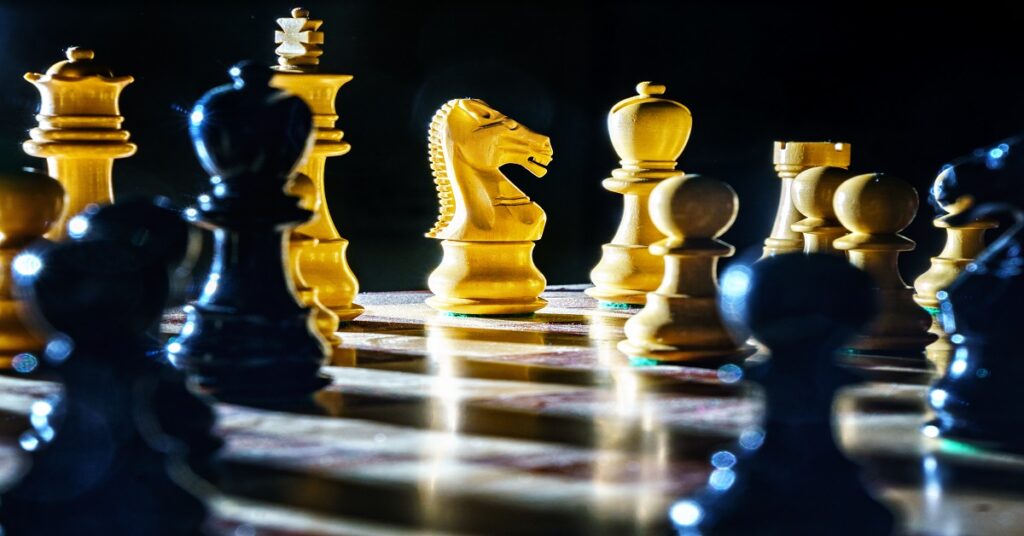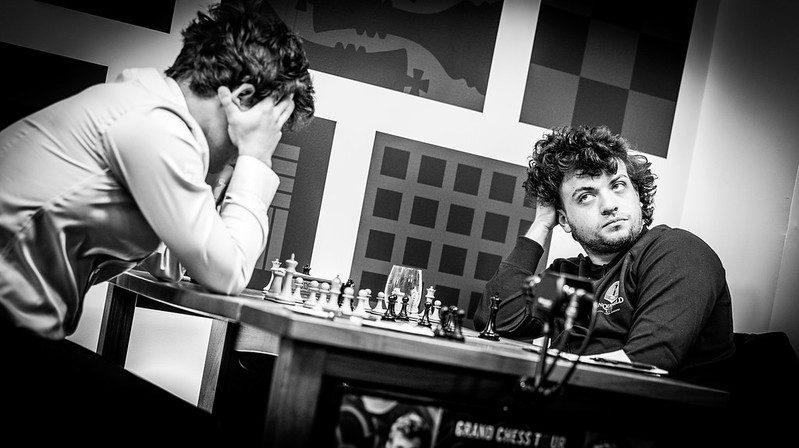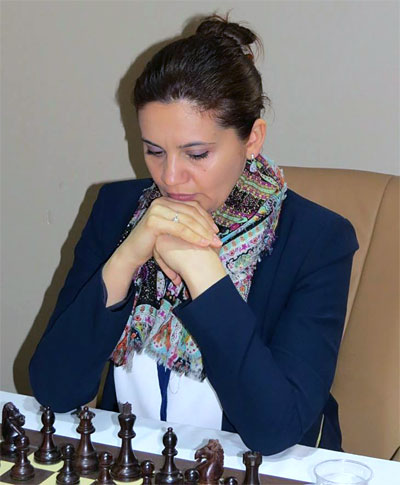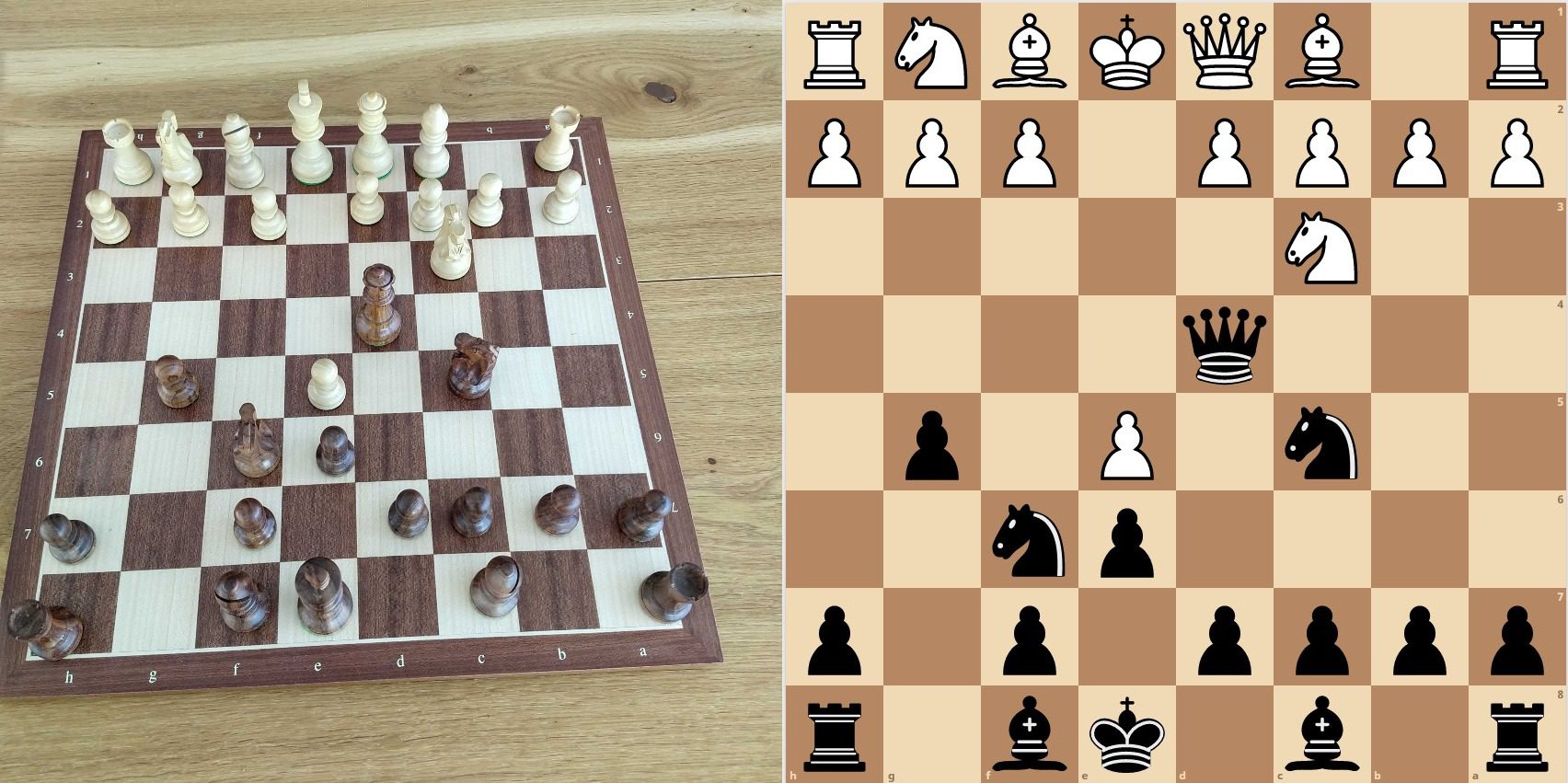Has cheating (accusations) in chess gone too far?
Cheating has remained in the chess headlines since the Carlsen-Niemann controversy in September 2022. In the past two years, chess has continued to grab international headlines. This is not because of the new World Champion, Ding Liren, or all the rising young players gracing the scene. It is not because of the increasing popularity of chess in mainstream society. Nor is it because of the wonderful Olympiad in Chennai, India, one of the best. Chess continues to be a model of erudition, and companies still use it as a metaphor for advanced strategic thought.

What did we see instead? We saw cheating allegations, sexual harassment, and even references to sex toys. There was also the controversy surrounding FIDE President Arkady Dvorkovich former ties with Russian President Vladimir Putin. Chess goes from being perceived as a game for keen minds to a game infested by war enablers, predators, bullies, egotists, imposters, and sexual deviants. Recently, there have even been tournaments that appear to be staged for players seeking to qualify for the Candidates Tournament.
How did we get here? It’s simple. We enabled this new culture where chess has been marketed in various ways to gain mainstream acceptance. Not all of it has been positive. Since COVID-19 pandemic, online chess has been booming and provided a fertile recruiting ground for new converts. As much as online platforms have popularized chess, given us great content, and helped us with our preparations, they also facilitate the spread of discord, mistrust, and rancor.

Hans Niemann and the Genie’s Bottle
We all remember. It was September 4, 2022, when the chess world exploded and will never be the same. The Carlsen-Niemann saga started a behavior pattern that has seriously jeopardized the game regarding its branding. Magnus Carlsen accused Hans Niemann of cheating in their game and drew a connection to the then-teenager’s earlier cheating infractions on chess.com. The chess world began to pour through every chess game he ever played, while the actual over-the-board (OTB) game he won only received a cursory glance from a few GMs.
Many GMs, including Garry Kasparov, concluded that Carlsen played poorly, and Niemann, while not perfect, played strong moves at key moments. Nothing out of the ordinary for a 2700-level player. Because Carlsen was the World Champion, his comments were given more credence. However, many did not support his actions and felt his nixing the Sinquefield Cup to be in poor taste. Weeks later, he resigned after one move against Niemann, a possible violation of FIDE Ethics policy. Kasparov also weighed in on the controversy.
Carlsen’s withdrawal was a blow to chess fans, his colleagues at the tournament, the organizers, and, as the rumors and negative publicity swirl in a vacuum, to the game. The world title has its responsibilities, and a public statement is the least of them here.
— Garry Kasparov (@Kasparov63) September 8, 2022
It was unbefitting of a player of his standard. Despite having no tangible proof from Carlsen, the chess world started down the rabbit hole of cheating. Imagine if a police officer pulled you over on suspicion (not evidence) of going over the speed limit because you had speeding tickets from the past. None of us would accept this. Niemann sought legal counsel and filed a $100 million lawsuit. One count of the lawsuit was dismissed, but the parties reached an out-of-court settlement before Niemann’s lawyers refiled the case in another jurisdiction.
(Note: Despite his playing level being questioned, Niemann’s current live rating is 2691. He is set to play in 2024 Tata Steel Challengers).
More than a year later, FIDE exonerated Carlsen on three of four counts but fined him 10,000 euros for withdrawing from the Sinquefield without due cause. FIDE’s Ethics Commission stated that his accusations were not reckless because Niemann admitted to cheating in online games. With this ruling, FIDE did nothing to warn others from launching similar accusations without proof. Since FIDE claims it does not distinguish between OTB and online games, they argued that Carlsen’s accusation could be considered credible (Case 2/2023 Document).
The FIDE Ethics and Disciplinary Commission has found Magnus Carlsen NOT GUILTY of the main charges in the case involving Hans Niemann, only fining him €10,000 for withdrawing from the Sinquefield Cup “without a valid reason”: https://t.co/1bLpdx6uRp pic.twitter.com/CUbEMWzRiG
— chess24.com (@chess24com) December 13, 2023
Entitlement Will Kill Chess
Few can deny that the public attack on Niemann was brutal, with players on all media platforms calling for Niemann to be banned for an infraction he had already been punished for. There were even those who called for imprisonment! There were embarrassing references to sex toys, a viral joke that was taken as an actual truth. Carlsen continued to sow suspicion with deliberate gestures such as resigning after one move and releasing statements about Niemann’s “unnatural” rise and his relaxed body language during the game.

WGM Mihaela Sandu of Romania was also unfairly targeted at the 2015 European Women’s Championships. Photo by Frederic Friedel
FIDE only stated they were “disappointed” that Carlsen did not have more tangible evidence. Yet there was no condemnation of his action. There was a precedent. Back in 2015, FIDE suspended Natalia Zhukova for three months after she falsely accused Romanian player Mihaela Sandu of cheating. Zhukova led a petition campaign after Sandu started the European Women’s Championship with 6/7, beating a few rating favorites. Sandu would lose her last four games while fending off accusations and attacks on her character.
In the 2015 ruling, FIDE wrote:
Case no. 3/2015 has emerged as a case of “witch–hunting”, namely a case of targeting a chess player in a public smear campaign with accusations of cheating based upon fears and suspicions unsupported by any concrete evidence. The case has attracted significant publicity in the chess world, due to the high profile of the players involved therein as well as the prominence of the tournament during which the facts of the case occurred.
~FIDE Ethics Commission (Case No. 3/2015)
Shame on all those who accused Mihaela Sandu of cheating. Check the evidence first. This is as harmful for the game as cheating itself.
— Lawrence Trent (@LawrenceTrentIM) May 29, 2015
More GMs Jump In
FIDE could’ve used similar language found in the Sandu ruling to describe Carlsen’s case, but kept delaying any opinion. The Zhukova ruling was thorough and decisive, but FIDE kept a distance in the Carlsen-Niemann controversy, issuing only one statement. This left the door open for more copycats. Some argued that Carlsen’s entitlement as the world’s top player affected FIDE’s action or lack thereof. As a result, there was no deterrent to players making similar claims.
In the past year, there have been other accusers. Baadur Jobava went on a profanity-laced tirade against Chinese players and was suspended from chess.com. Gata Kamsky has gone on record accusing players of cheating and even pronounced the end of online chess.
Online chess is finished. Cheating has won. Congrats cheaters. May you all rot in hell for eternity.
— Gata Kamsky (@IGMGataKamsky) November 7, 2023
Vladimir Kramnik went on record to say 50% of players, including Hikaru Nakamura, were cheating. It’s ironic because Nakamura was the main source of information on Niemann’s cheating saga. Ironically, Kramnik was also accused of cheating against Veselin Topalov in their 2006 championship match. In the current spat, Nakamura and Kramnik have taken the battle online. There have been more videos, banter, and even legal threats.
The online platform has given freedom of speech. The ability to say anything, accuse anyone, and insult anyone without repercussions is due to the nature of the interaction. Without risking being assaulted, you can hide behind the keyboard and be anyone you want. You can even hurl cheating accusations (with no proof) after a bad loss and ruin someone’s reputation.
Video by C-Squared Podcast
Because of Kramnik’s speculative cheating allegations against several players, chessdotcom took action against him just an hour ago. What a difference a year makes!
— Chess.com (@chesscom) December 24, 2023
Is online cheating the same as OTB cheating?
There are, of course, many differences between online and over-the-board chess. FIDE recently stated that they regard cheating in each format in the same fashion. “Cheating is cheating,” one could say. The question is, should they be considered equal? IM John Bartholomew had an interesting take on the Ethics & Disciplinary Commission (EDC) ruling.
This part of the Magnus Carlsen/Hans Niemann EDC (pg. 11, sec. 13.7) is stated pretty casually, but it’s crucial to the broad cheating debate in chess:
— John Bartholomew (@fins0905) December 13, 2023
“The EDC Chamber finds it unnecessary however to make a distinction between different forms of cheating. Whether it be… pic.twitter.com/ql1gWfzY9N
It doesn’t appear that all cheating is treated the same. If so, more would have been made of other players banned in online play, much less Carlsen’s own violations in “fair play.” No one took them seriously, and therein lies the conundrum. Do you take every infraction seriously or not? Even chessdotcom’s report cited the violations of “hundreds of titled players,” including “dozens of GMs.” Four of these players cited were said to be in the top 100. However, we had the case of Hans Niemann, who was suspected of cheating at the Sinquefield, in part because of his online cheating history.
One paradox is that online cheating has to rely on algorithms or some intelligence agent (usually engine verification) to catch cheating patterns. With these methods, you can pick up false positives. Chessdotcom alleged that Niemann “likely” cheated in over 100 games when Dr. Kenneth Regan said the number appeared to be 32-55 games. Of course, online platforms cannot put an arbiter in everyone’s home. Thus, online chess is largely based on an “honor code” which is far too often violated, even by very strong players. Online chess has a more relaxed persona as players are seen playing in the confines of their homes.

On the other hand, FIDE can police OTB tournaments with metal detectors, body searches, and the prohibition of smart devices. Not all OTB tournaments have these resources, but the major tournaments will have some measures in place. FIDE will generally ban someone because of unmistakable evidence (i.e., use of electronic devices) or an uncovered collusion (i.e., hand signals, speaking away from the board). OTB can put controls in to make cheating almost impossible. Even jamming signals is an option.
There are countless ways to cheat in OTB play, but the stakes are much higher since one cannot control the environment. These circumstances make the two platforms very different in terms of cheating threshold and being able to provide evidence. As we have found, centipawn loss, and 100% games do not prove cheating happened. Kramnik has taken a shot at trying to show that players play above their standard in critical rounds. However, his methods have been taken into question. At the least, a warning or reminder should be issued by FIDE.
Reckless or manifestly unfounded accusation of chess cheating: Any player or official who, or National Federation which, makes public or private allegations of cheating against another player or official without acceptable grounds existing for a reasonable suspicion of cheating; provided that a player is not precluded from reporting in private to an arbiter or anti-cheating official during a competition any suspicion of cheating by another person for the purposes of monitoring the behaviour of such person.
~FIDE Ethics & Discplinary Code (Article 11.7(f))
Where does it end?
Maybe this online boom in chess is also a double-edged sword. The Carlsen-Niemann controversy touched off a very vigorous discussion about online cheating and cheating in general. Last year, Belgium’s IM Stefan Docx was banned from an OTB tournament. GM Artur Kogan, who runs an anti-cheat initiative, states that Docx had been suspected for years, but there was no evidence of cheating. Docx refused to allow a metal detection search and was banned from the Benidorm Open in Spain. Social media was rife with theories, but nothing pointed to anything concrete.

Far too many amateurs are trying to be statisticians and using dubious methods to affirm their preconceived notions. For example, if you perceive someone is cheating and cherry-pick data to prove your contention, those results already possess a bias that would not be accepted in any peer-reviewed process. Many did this without possessing even the most rudimentary knowledge of research methodology. Despite these flawed reports, they were given credibility on popular streams.
More must be done to stop or deter these false accusations from further sullying the game of chess. There should be severe penalties for false accusations to avoid the notion that you can bring one’s character into question without any proof (See Article 11.7(f) of Ethics & Disciplinary Code). A stiff monetary fine should also be paid as compensation to help repair the personal damage. Penalties will be based on the frivolity of the accusation. FIDE could sign a memorandum of understanding (MOU) with chess content providers for cross-platform solutions (i.e., fines and bans) to cheating violations and false accusations.
Cheating is a blot on chess, but false accusations are also detrimental. Both actions damage the game, but unfounded accusations can inflict long-term damage because they breed distrust in the entire system. In civil society, a false accusation can cost an innocent person their reputation, privilege, career, freedom, or even their life. The damage has a lingering effect on the falsely accused, as people may still doubt their innocence. However, the accuser goes on about their life (most times unpunished) after creating a devastating blow in someone else’s life.

While we work on eradicating cheating in chess, let us avoid making frivolous accusations based on weak data analysis, coincidences, strange vibes or body language we may misinterpret. If you don’t have solid proof of cheating, then don’t speculate. Contact authorities and press them to investigate.
Regarding online play, losing a game (or games) against a lower-rated opponent is not proof of cheating. Suspicions are not enough. If recent examples are anything to go by, the strongest of chess players can also be horribly wrong about cheating suspicions. Bringing dishonor to chess through cheating or false accusations is equally despicable.
Chess deserves better.

It’s interesting that as a professor, I had to give online exams during COVID-19, and it was hard to stay ahead of cheating. Now I give in-person or OTB exams because I can watch the students, and it is much, much harder for them to cheat. The stronger tech gets, the more we may have to revert back to retro methods.
Very well written perspective!
It’s gotten totally out of hand!
After additional thought, I have come to a realization that Carlsen should have been penalized for false accusations.
Here’s why…
In the EDC report it reads
FIDE used the fact that Niemann publicly admitted cheating as their rationale for not holding Carlsen accountable for false allegations. However, Carlsen threatened to withdraw from the Sinquefield before and used cheating as his rationale. This was even mentioned in the EDC report (10.2),
Niemann publicly admitted to cheating online two days later. Clearly, Carlsen purposely used Niemann’s past to cast doubt on the legitimacy of the win. The reasons he gave for suspecting Hans were extremely weak and of course, they were found to be false.
Since Carlsen was not penalized, we will continue this downward spiral of players accusing others (who may or may not have cheated before). If a player (sanctioned for cheating previously) beats an opponent, the opponent can damage the player by saying he suspected cheating in the game because he had cheated before. The opponent can try to get the loss vacated and would suffer no consequences, even if he were grossly wrong. It sets a dangerous precedent. Since so many players have cheated before, it would create a free-for-all.
I also find it counterproductive that Hans Niemann’s statements about cheating – which were seemingly about him coming clean about actions two years ago – were used as justification that he would be cheating now. Normally you want to reward someone being honest about youthful indiscretions, because it’s the people who don’t speak out about it or lawyer up immediately that are more likely to be playing the system. Hans’ statement was far from perfect, but it may have honestly been his perspective – we know in law memory after 2 years has issues.
His statements were vilified afterwards and it was said he lied about some things, but so far I haven’t seen any proof of that. The chess.com report was very biased. He could have been honest.
I agree that there should have been a firmer stance against unfounded accusations. In this case, cheating cases 2+ years ago online and not repeated should not be considered justified for OTB play. It’s just going to encourage more drama.
You’re right. He made a reasonable statement and should have been credited for that. Instead, it was turned into a circus that led to a lawsuit. I know someone close to Niemann and was told it took a toll, but he kept his composure when many would’ve crumbled in a similar situation.
Much of this hinged on the statement of the exact number of times Niemann cheated. The reality is he would not know exactly how many times he cheated. He said “multiple games” during two periods. The chessdotcom report said 100 and listed the games. Dr. Ken Regan disputed this and said it was 32-55 times. Whatever the amount, it was irrelevant because he had already agreed to the terms of the punishment and had been reinstated. None of this had anything to do with Carlsen’s Sinquefield accusation.
I believe Carlsen and chessdotcom dodged a bullet by not allowing this to go to a legal case in the proper jurisdiction. A lot of embarrassing and revealing information would have come out, including Carlsen’s own cheating (on video). They would have had to reveal names and how they dealt with cheating in these cases. It would have been disastrous.
It has encouraged more drama, but I believe Vladimir Kramnik going after Hikaru Nakamura was a blunder.